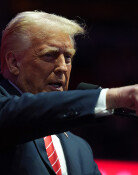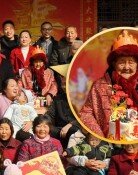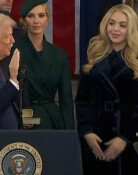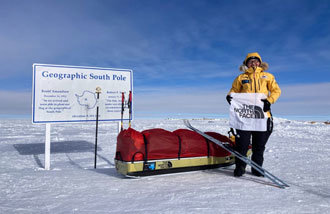Meeting No-Shows Roil Cheong Wa Dae
Cheong Wa Dae has rolled up its sleeves to restore the slack in public information that promotes government policy to the public. The failure of public information management office chiefs of some government agencies to attend last months National Affairs Public Information Strategy Meeting with no particular reason triggered such a response from Cheong Wa Dae.
Cheong Wa Daes public officer discipline team checked the reasons of absence and reported the results to the concerned ministers, which will be reflected upon their personal evaluation.
It is said that after being reported of such a situation on April 24, President Roh Moo-hyun ordered the public information offices of all ministries to strengthen a coordination system centered on the Government Information Agency (GIA).
On May 25, Cheong Wa Dae spokesperson Jeong Tae-ho stated to reporters, Publicizing policy is very critical, and we were checking if people attending the meeting had a sense of responsibility.
The meeting was created in the past, when former Prime Minister Lee Hae-chan was in office, and is held every Thursday, with its purpose being to establish a strategy to promote the governments policies. The vice ministers and public information chiefs of all ministries should attend the meeting.
The first Thursday meeting is chaired by the prime minister while the remaining meetings are chaired by the head of the GIA. When the prime minister chairs the meeting, vice ministers and chiefs of public information attend the meeting, but only chiefs of public information attend the meetings hosted by the GIA head.
Unlike when the prime minister chairs the meeting, when the head of GIA has been in charge, often chiefs would not attend or send their subordinate workers. Hence, Cheong Wa Dae even admits that there were some remarks citing, What is the need to hold such meetings?
A government official commented, The head of the GIA is on a vice minister level, and the GIAs status is not that high, so there are more than a few ministries that are unwilling to cooperate.
Some analyze that Cheong Wa Daes actions to review the operation of the meeting is a move to enhance the status of the GIA as the primary department in charge of policy promotion. It also seems that the current government has a sense of urgency, feeling that if it leaves the continuous absences unaddressed, the forefront of policy promotion, on which the government is focusing on, could fall apart.
Cheong Wa Daes stance is directly linked to President Rohs determination of emphasizing policy promotion. Spokesperson Jeong described this in saying, The president has been saying that policy-makers should also be responsible for its promotion as well.
A Cheong Wa Dae official also stated, If the meeting is unattended for no particular reason, it will be dealt with in a variety of methods including drawbacks to personal careers.
Nevertheless, a government agency official said, Although I know that Cheong Wa Dae was very concerned with public information, it went too far by roll calling public information chiefs, who are senior officials, and pressuring to place disadvantages on them if they dont attend.
Yeon-Wook Jung jyw11@donga.com






